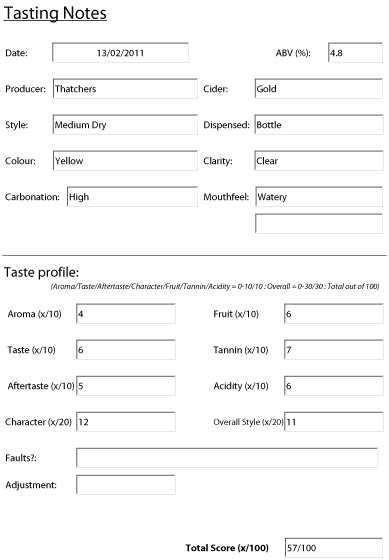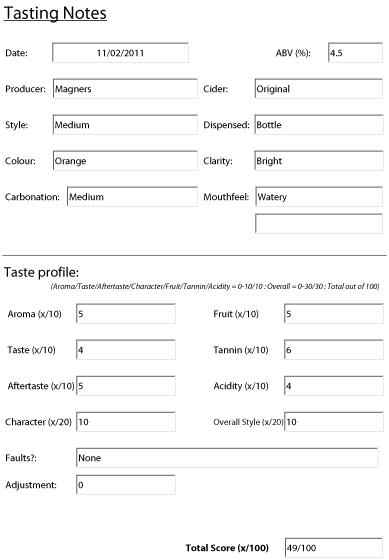When you don't live in Ciderland, the main source of any kind of cider is the off licence or supermarket. Its not as simple as trundling down the A303 or M5 and finding a cider maker off every junction (though I am sure its not that simple, even in the cider making counties!). So, where do you find really good cider? Online... festivals... by getting in the car/on the train. It is possible. However there are plenty to review just from the supermarkets; which is why there are few artisan producers reviewed here yet.
I think Henney's probably comes as close as you can get for a producer that supplies nationwide. Sure, there are others, but not so widely available.
Once again, I like the use of bottle and label - a darker look for the Vintage style. I really hope that these vitage ciders, with the year named on the label are truly that - its going to be interesting reviewing the next years vintage against the current one.
When its poured, I notice two things: Its a flat cider (i.e. no carbonation). Also, its a good deep colour - golden is a pretty good description. At 6.5% its unlikely to have been cut with water too much (going by Henney's own website, they only cut to get to a desired level - unless I am misreading it!). As a flat cider (i.e. no carbonation) its not going to appeal to everyone. But its not a bone dry cider either. This was a bit of a surprise to me at first, although its not made from just cider fruit, so there is some residual desert sweetness about it too.
I like this cider - I like it a lot. More so because I can go back to Sainsbury's tomorrow and buy a lot more to share with friends! First off, it has a nice cidery nose to it - not just apple arome, but a real cider smell. Then it is a rich mouthful, with tannins coming through, but also sweetness too which balances it out. Finally, there is a lasting taste - a good taste too. The cider I made last year had a similar aftertaste. My cider was full juice, I have no problems with this one at all.
So, why does it only get a silver then? Well, for one, only my absolute favourites should get a gold - its not meant to be easy! Second, whilst I like this one a lot, I do have a question mark about its character which is reflected in the score. It does so much well; its a good Herefordshire cider. But its still lacking something that I have found in the very best ciders. Its a little bit sweet beyond the sweet/bittersweet apples and is pasteurised too, which (and I never thought I would be able to tell) leaves it a bit too.. well... stable I suppose.
With a score of 80, its the first to get a silver apple from this cider fan! Well done and thanks, Mike Henney.

























